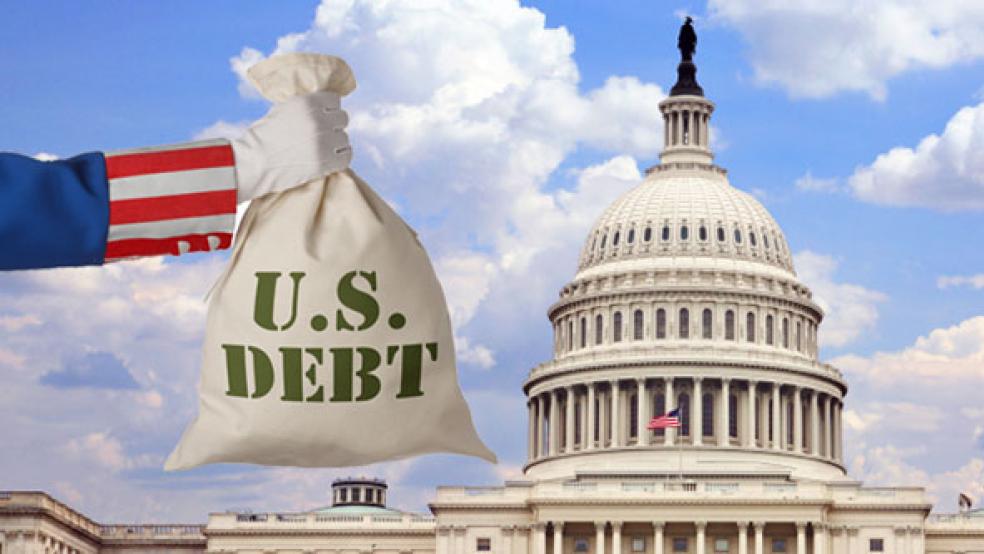Congress has authorized some $3.6 trillion in federal spending and tax relief to combat the coronavirus pandemic and resulting economic destruction — programs that will add about $2.5 trillion to the federal deficit.
More is likely coming, but any additional spending is already the subject of heated debate, raising fears that bailout fatigue and wariness surrounding additional deficit-funded stimulus measures might weaken the eventual recovery, inflicting prolonged economic pain on millions of American businesses and households — fears, in other words, that we may repeat mistakes some economists say were made after the financial crisis a decade ago.
“The economic scarring if lots of businesses go bankrupt and households are wiped out financially in this episode would be a failure of policy,” Karen Dynan, a Harvard economist and a former Treasury Department official, told The New York Times. “Based on the 2008 experience, a real concern is that we will tire of fiscal stimulus before the need for that money runs out.”
A political question: Democrats are looking to move quickly on the next phase of legislation and have reportedly begun writing a new multitrillion-dollar bill. Republicans, though, are grappling with some internal divisions over additional spending, with some in the party calling for more aid while others seek to pull back. Some in the GOP oppose additional help for Democratic states like California and Illinois that they say dug themselves into a hole before the pandemic hit, while a number of Republicans have expressed renewed concerns over the rising deficit and record national debt.
“After years of pillorying the Obama administration over spending and blocking efforts to pump more money into the economy following the 2008 financial crisis, GOP leaders now find themselves struggling with how to balance the need to prop up the struggling economy ahead of the fall’s elections with concerns that too much spending could hurt them with their base of voters,” The Washington Post’s Seung Min Kim wrote over the weekend.
The deficit debate is premature: Kim noted that “economists from the right and left — as well as a not-insignificant number of GOP senators — are warning of the dangers of pulling back on federal spending too quickly, alarmed that doing so will create long-lasting problems for the economy and the American worker.”
Case in point: “The pandemic response got off to a really promising start, with everyone coming together with a whatever-it-takes attitude,” Jason Furman, who served as chair of the Council of Economic Advisers under President Obama, told the Times. “But we’re slipping back into the types of gridlock, over-optimism about the economy and over-pessimism on the deficit that followed the financial crisis and unnecessarily prolonged the economic pain.”
Brian Riedl, a senior fellow at the conservative Manhattan Institute, told the Post that he’s been a “deficit hawk economist for 20 years” and that we’ll need significant deficit reforms as soon as the economy recovers, but now isn’t the time to pull back on spending. “You can’t begin to solve the debt crisis until they have solved the economic crisis, and that will take spending money in the short term,” he said.
Vox’s Dylan Matthews argues that, while there are times when deficit concerns are appropriate, it’s far too early in this crisis to even entertain discussion about an eventual pivot back to deficit reduction.
“This is, to be frank, an outrageous time to give a [bleep] about the federal budget deficit, or about the debt (the accumulated total of past deficits, plus interest). The US in the very early stages of the worst economic downturn since the Great Depression, and [the] true unemployment rate is likely around 15 to 20 percent,” he writes. “Congress’s stimulus measures to date have been helpful, but clearly inadequate in the face of the crisis before us. The US needs investment on the scale of the New Deal or greater to meet this challenge, and worrying about deficits promises to strangle the recovery in the crib.”
A debate about the future of the GOP: The current deficit talk presages, or is part of, a broader GOP debate about the future of the party, Politico’s Ryan Lizza reports: “In 2020, the economic libertarians who once defined conservatism have disappeared. Instead, the most interesting debate is among Republican policymakers crafting large-scale programs to get government checks into the hands of economically disenfranchised people as quickly as possible.”
Lizza points to Republican Sens. Marco Rubio of Florida and Josh Hawley of Missouri, who have pushed for a more populist approach to policy, one that is more accepting of government intervention. “Now the question is whether they represent the future of the GOP — the rising stars who will define the party after Trump — or whether they are simply like firefighters called in for an emergency before the party defaults back to its traditional small-government worldview,” Lizza writes.
The answer may be determined by the 2020 presidential election: Liberal Washington Post columnist Paul Waldman argues that most Republicans haven’t had their views changed by the pandemic. “And,” he writes, “they’ll be more than happy to begin deficit fearmongering as an excuse for austerity at the earliest opportunity — i.e., if there’s a Democrat in the White House to suffer the consequences. … Should Trump be reelected, all those who claim to be deeply concerned about the debt will say that we really should do something about it — but not quite yet, not when cutting spending or raising taxes might be too damaging to a Republican president.”





